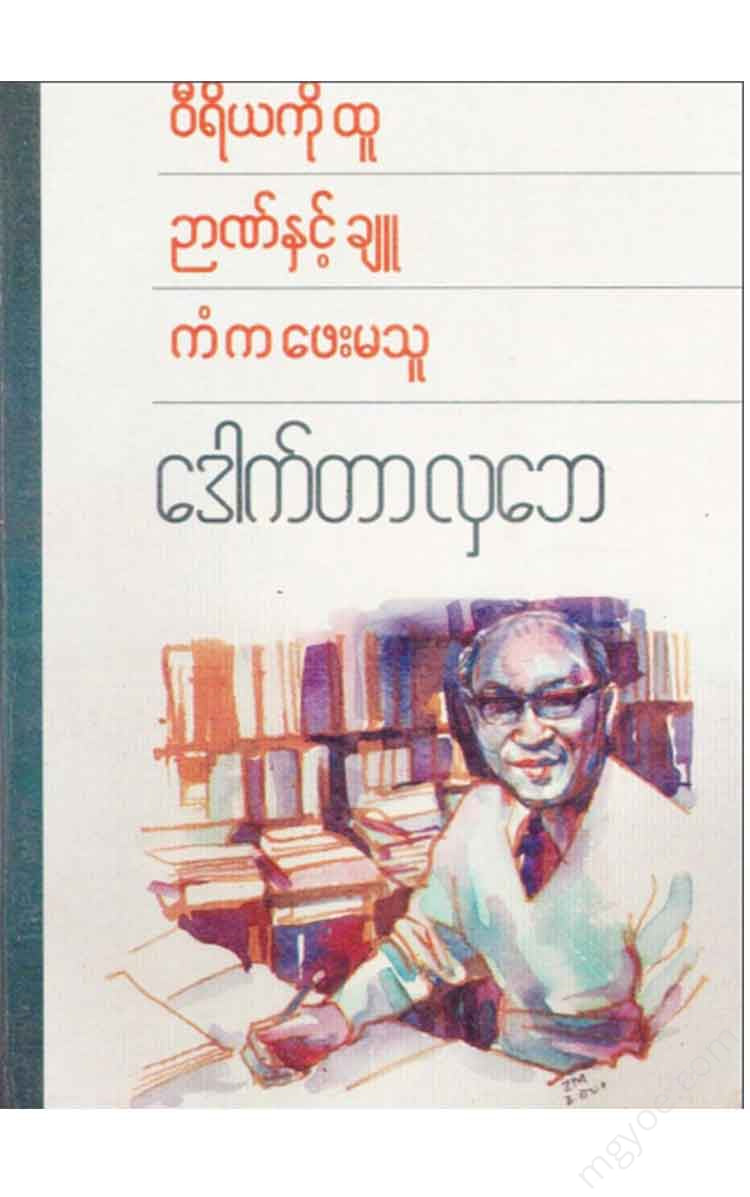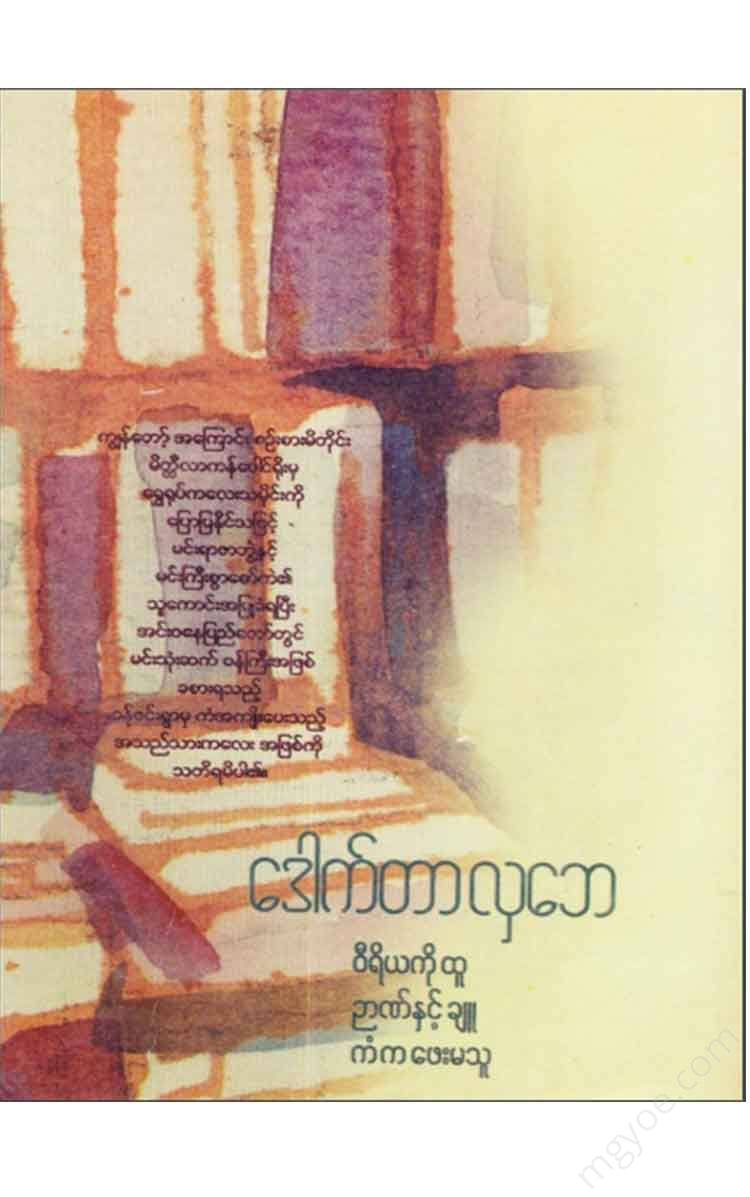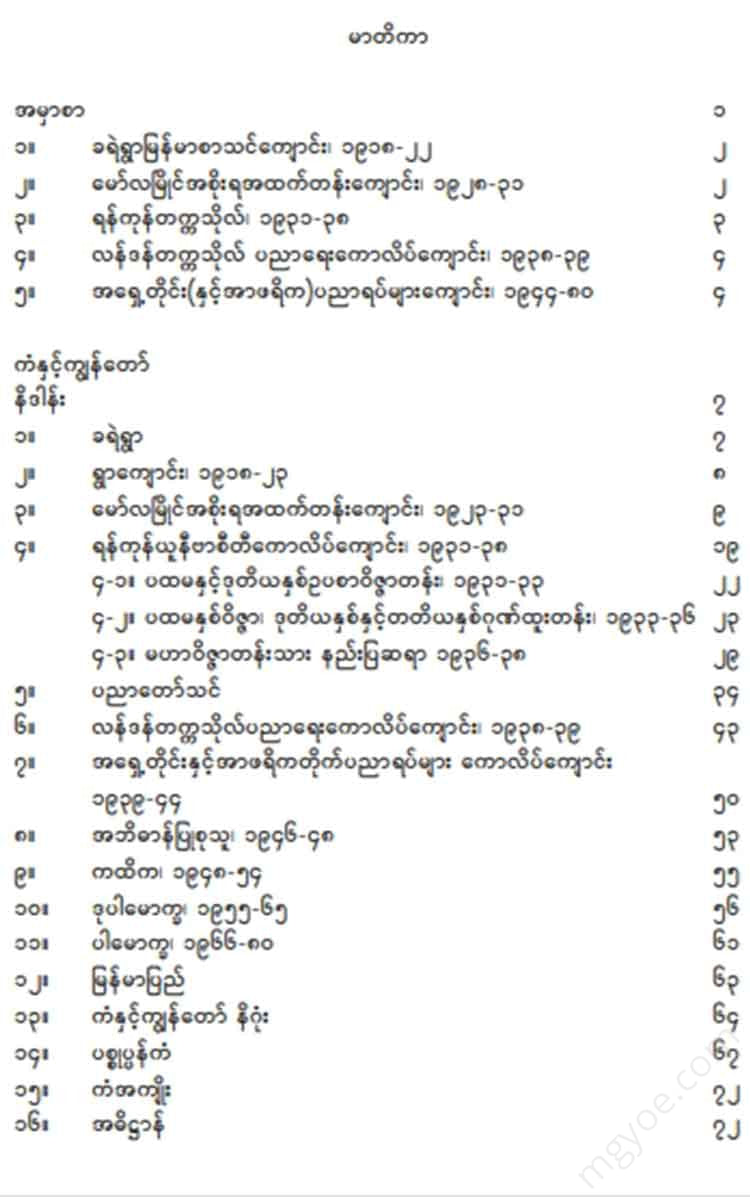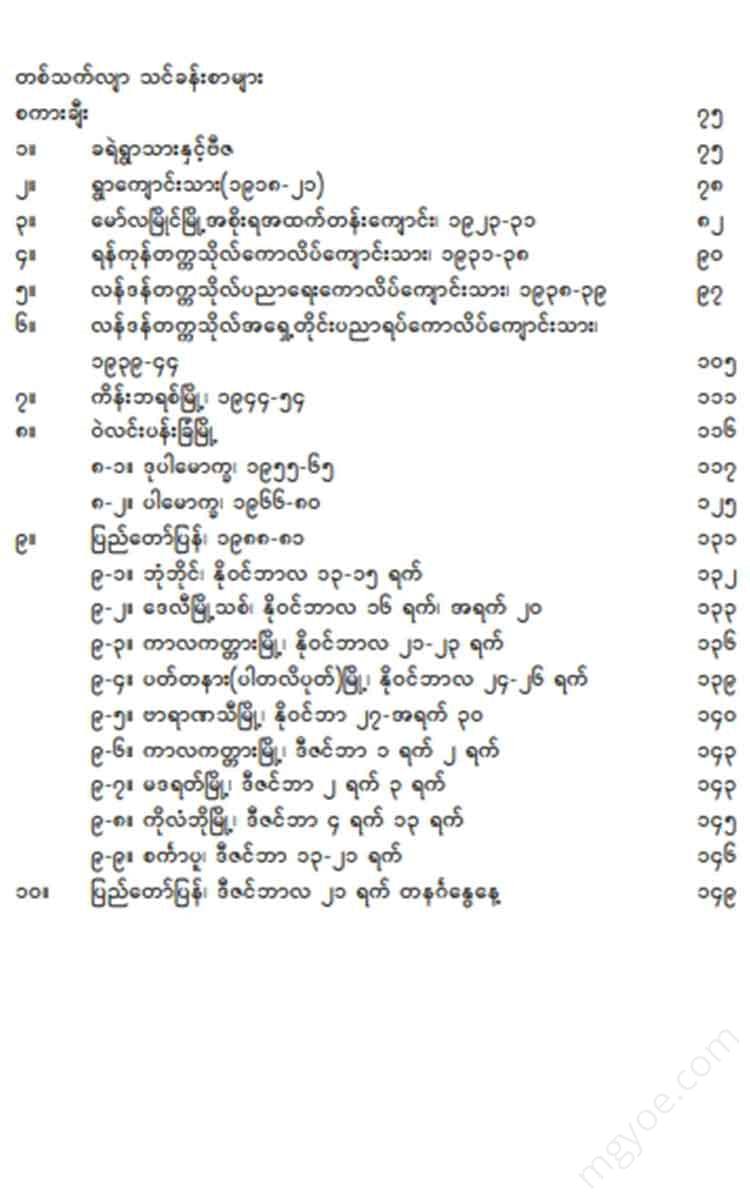Other Websites
Dr. Hla Bae - A person who is wise and has good fortune.
Dr. Hla Bae - A person who is wise and has good fortune.
Couldn't load pickup availability
Order
"Fortune and I" and "Lessons from a Lifetime" are two of my long articles, and I have been receiving a request from the publisher to publish them in a book, and I have not been able to write the book with the title "Fortune and I" for a long time. I picked up my pencil, but I was so upset that I couldn't write. Now I have a clear vision and have given the book the title "Fortune and I" and this "Fortune is my support" and I have been awarded this " Fortune and I" award .
This is the Preface to the book. The main points in the book are summarized as a preview for the benefit of the readers. A person has three karmas: how much intelligence he produces, how much effort he puts in, and the two karmas of the past and present. If he does not follow them, his desires will hardly be fulfilled. It is impossible to fulfill them completely. First, I will present three incidents from all my experiences that have proven this statement to be true. Then, I will describe in detail how karma creates people or circumstances that do not help me grow, and I achieve unexpected success, positions that I did not dare to reach, and a collection of achievements that I did not deserve.
Two of the three men were from Burma and one from England. The first man was a smart, hardworking middle-aged man who had a difficult life. Then, through luck, he became a famous and wealthy man. The second man was a university professor who, despite his hard work, had to retire without getting the position or wealth he deserved. His reputation was good. The third British man was an English scholar from Cambridge University, and he excelled in English literature.
4. University College of Education, London, 1938-39
In August 1938, I was terrified of traveling alone, by ship and train, 9,000 miles, from Rangoon to India, from India to France, and from France to England. However, to make it easier, I had to accompany a priest from the Jepsen College from Rangoon to Marseilles and Indian students from Marseilles to London. I contacted the secretary of the Burmese Society in London and a student, and everything went smoothly.
From the day I registered as a student at the college to passing the exam, everything went smoothly. For example, on the first day of registering as a student, I met the deputy secretary, U Khin Zaw, the secretary-in-law of the Yangon University Registrar. It was all done in one sitting.
I met Mr. N. C. Scott. I don't know if we had done good deeds together in our previous lives. We had everything we wanted in education, relationships, and business. When I passed the exam, he wrote me a letter of recommendation to use when I applied for a job without asking me. When I told two Indian students about the tutor, they said, "Mr. Bae, you are very lucky. I don't know if our tutor is because we are foreigners, but the relationship is very poor. I think we are too good."
After passing the exam, I was racking my brains over which degree to pursue, such as B.Ed., M.Ed., etc., when U Wan (Min Thu Wan) arrived. He said he wanted to meet Dr. Stuart, a lecturer in Burmese literature at the School of Oriental Studies, University of London, and the editor of the Burmese-English dictionary. I met him. He wrote a doctoral thesis on Burmese literature. He graduated. He eventually became a professor at the University of London. Whenever I think about this, I am reminded of the story of the young Janaka prince who swims in the ocean for seven days in the great epic, the Janaka prince, who is saved by Mani May Khlaw, and eventually becomes a king. I will not summarize the legendary story of how he became a professor from a student's life.
5. School of Oriental and African Studies, 1944-80,
On September 3, 1939, World War II broke out. I became a student in October. My teacher took me to the principal of the same town, Professor R. Tanna, and introduced me.
Writing a PhD thesis during the war was a tiring and exhausting experience. I spent my time searching for information in London libraries, wondering when bombs would fall, and when the Germans would invade England. Finally, in 1944, my PhD thesis was awarded the title of Professor, and the war was over, and the school was not only renamed the School of Southeast Asian and African Studies, but the headmaster was also awarded the title of “Sir.”
In May 1948, the teacher died of a heart attack. In October, I was given the position of Lecturer in Burmese. I later learned that the teacher had written to me and that I had become the new lecturer. In October 1949, the school authorities appointed Dr. D. G. E. Hall as Professor of Southeast Asian History and at the same time appointed him as Head of our Department of Southeast Asian and Insular Languages and Literatures. The Head of the Department had served as Professor of History at Rangoon University from 1920 to 1934, and was familiar with me.
As per my academic record, I taught, did research, and helped to promote Burmese literature in a foreign library. I published books and articles. In December 1954, the Dean of the Department, Professor Hall, with the approval of the Principal, sent a letter to the University to appoint me as an Associate Professor. In January 1955, the Senate conferred the title of Associate Professor on me.
I was happy. I did not think too highly of myself. I did not expect to continue to be a professor. This was due to the following reasons. The university has two major subjects: Chinese, Japanese, Arabic, Sanskrit, and other minor subjects: Myanmar, Hinduism, Cambodia, Malaysia, and Vietnam. Only the major subjects are appointed as professors. Another thing is that the former principal retired in 1958 and Professor Hall in 1959.
We appointed Professor N. C. Scott, Associate Professor of Linguistics, as our Head of Department. In 1965, when Mr. Scott became Professor, the school gave the position to Associate Professor Mrs. E. J. A. Henderson. My fortunes were in the ascendant. My teacher went to Burma in 1954 and studied the Chin language systematically. In 1965, a book called Tidian Chin was published. It was a gift to me. In December 1965, when she became Professor, she wrote a letter of recommendation to the authorities of the University of London that same year to appoint me as Professor of Burmese. In January 1966, I received the letter of appointment as Professor of Burmese. I was delighted to receive a rare opportunity.
After I became a professor, three assistant professors in the department were promoted to professor one by one. They were not promoted to professorship in the same way as we were. Mr. H., L. Shatoy was in Khmer studies, Ms. Ta Gee, B., Myint was in Australian studies, and Mr. E., H., E., and S. were in Southeast Asian studies and literature.
After I retired, some scholars asked who would get the Chain (chair). I said, “I don’t have a chair, let alone a Sil (seat),” and explained that I didn’t have a professorship for Burmese, which is not a major subject. That’s why one scholar remarked, “You are the first and last Burmese professor.” (The English word “Chair” is a title for a professorship.)
From 1948 to 1980, my fortune did not fluctuate like a bird's flight, but rather went up and down, and finally reached the highest level of life. It's amazing. Let's wait and see what the future holds. I'm now in my 60s.
Beautiful
Mawlamyine
1998
Luck and me
Introduction
This article was conceived in 1981. I returned from England in December 1980 and settled in Mawlamyine on January 3, 1981, having retired, so I had time to reflect on my life. As is the custom of most older people, I have been writing down the scenes that have emerged from my youth to the present day, ruminating on them.
"My family is a farmer and merchant. I went to Mawlamyine English School in the village, graduated from the school, and went to Yangon University. Finally, I continued my education in England, got a job at the University of London, settled down, and lived there for more than 40 years. Why did I embark on this unexpected journey? I think it was because of fate. I have been affected by the good and bad karma of my past, which means work, and I have tried to improve my present karma as much as I can. This is a summary of my biography based on how I personally think that when I am lucky, I advance and when I am unlucky, I go to the end.
1. Find a place
I was born in the village of Khyet, which is considered by scholars to be the most beautiful of the four great mountains. It is located on the right bank of the Hlaing Bwe River, which flows into the Chai River, 40 miles from Mawlamyine and 17 miles from Kawkareik, and about 2 miles from Jaishar. My father’s widowed grandmother headed the family. When I was 2 years old, my two sisters, Daw Gyi, Daw Lat, Daw Lay and Daw Htwe, four old women, took me from my brother, Ko Maung Ngwe, and his wife, Daw Khin Khin. My kind mother had a baby at that time. My father and mother were planning to live in Kawkareik.
Fate is strange. My mother gave birth to a firstborn son. I didn't read it. I thought that if my brother was still alive, my aunts would adopt him. If so, my life story would have changed.
At that time, there were two young sons, four aunts, two close relatives, and four or five workers with the grandmother. With the help of her daughters, the grandmother set up a small grocery store and had 4-5-10 acres of land, some of which she worked herself, some of which was worked by her married daughter and son who lived in different houses in the village, and the rest of the land was rented out. It was a village where there were rich people and poor people.
Soon after I was adopted, a fortune teller was called in to cast a horoscope. The fortune teller predicted that my father, who was born in the highest position, would become a king if he became a king, or a monk if he did not. I remembered the prophecy that the Brahmins had made to the young prince Siddhartha, that he would become a king of the universe if he became a king, or a Buddha if he did not.
My aunts and uncles say that my personality has been there since I was a child. I love books and respect them. When I cried, I would stop crying if I gave them a book. I would fall asleep while reading and cuddling with the book. I remember that if I accidentally stepped on a book, I would sit down and worship it. It was funny when my naughty cousins would touch my feet with books and kick me around. My aunts and uncles would yell at me and chase me away.
2. Village School, 1918-23
At the age of five, I was entrusted to the village school teacher, U Phoe Chit. He loved me. When I was dismissed from school at lunchtime, the teacher asked me questions about geography and math, such as what is an island? How much is a basket of rice? How much is 12 baskets? The first person to answer was sent away first. I was always among them. I reached the highest grade, the fourth grade. One day, I read about the Bodhisattva Prince Asaditha, who was a monk who had a bow and arrow. It stuck in my mind.
Sayar U Po Chit had to move to a big village to become a school teacher, so he came to greet his grandmother before he left. I was sitting in front of the house not far away. When I looked up, I saw a pair of mangoes hanging low on the stalk. I suddenly said, "It's impossible." Then my cousin who was nearby asked, "What's impossible?" I said, "The arrow that the prince shot pierced the stalk and went up, but the pair of mangoes did not fall. The arrow that came back hit the mangoes.







